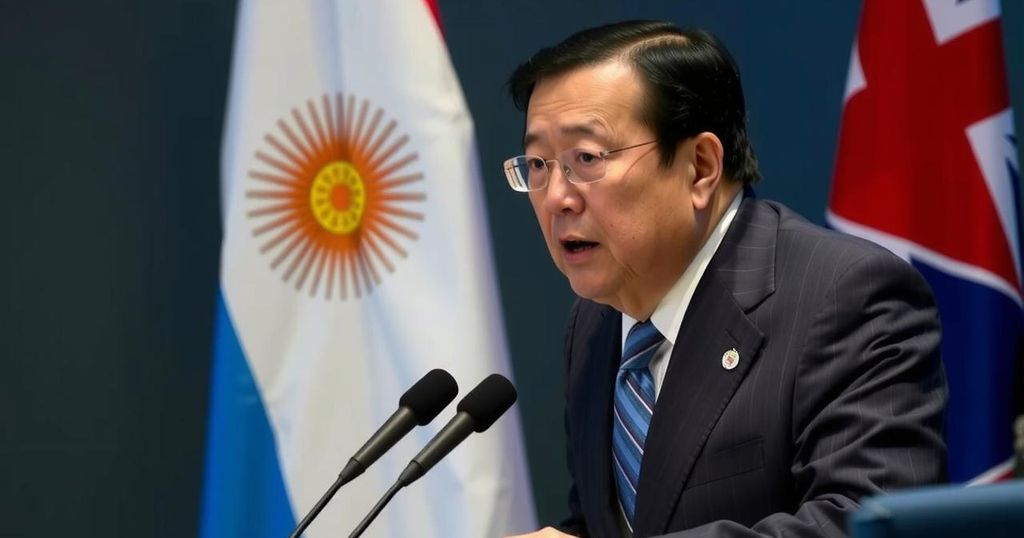Milei Dismisses Foreign Minister Over Support for Lifting U.S. Embargo Against Cuba

Argentine President Javier Milei has dismissed Foreign Affairs Minister Diana Mondino after she voted in favor of lifting the U.S. embargo against Cuba at the U.N. General Assembly. This action reflects Milei’s pro-U.S. foreign policy stance and aims to strengthen ties with allied nations while distancing from leftist governments. Gerardo Werthein has been appointed as the new foreign minister, emphasizing a pivot towards U.S. interests.
President Javier Milei of Argentina has removed his Foreign Affairs Minister, Diana Mondino, following her vote in support of lifting the U.S. embargo against Cuba at the United Nations. This development occurred amidst Milei’s strong pro-U.S. stance since taking office in late 2023, coupled with his administration’s efforts to distance Argentina from leftist regimes in Latin America, including Cuba and Venezuela. Earlier on the same day, the U.N. General Assembly adopted a non-binding resolution urging the United States to end its long-standing sanctions against Cuba, a motion that was met with opposition solely from the U.S. and Israel. In response to Mondino’s vote, which contradicted his administration’s foreign policy direction, President Milei has appointed Gerardo Werthein, currently serving as Argentina’s ambassador to the United States, as the new foreign minister. This decision underscores Milei’s commitment to align Argentine foreign policy with that of the United States and Israel. Significant tensions have surfaced between Argentina and Cuba, as evinced by Argentina’s state energy company YPF halting fuel supplies to the Cuban airline Cubana, resulting in the suspension of a long-standing route between Havana and Buenos Aires, justified by references to the U.S. embargo.
The political climate in Argentina has been significantly influenced by President Javier Milei’s libertarian ideology, which promotes strong ties with the United States while distancing the nation from left-leaning governments in Latin America. Since his inauguration, Milei has taken decisive actions to realign Argentina’s foreign policy, focusing on cooperation with pro-Western nations while eschewing alliances with countries governed by socialist or communist ideologies. The recent vote by the U.N. General Assembly called into question the longstanding embargo against Cuba, thus presenting a stark contrast to Milei’s foreign policy objectives. The interrelations between Argentina and Cuba have been strained historically, evidenced by diplomatic maneuvering and economic measures that reflect Argentina’s cautious approach towards regimes it considers dictatorial. Mondino’s support for lifting the embargo found her at odds with the Milei administration’s clear directives, leading to her dismissal.
In conclusion, President Javier Milei’s recent decision to dismiss Foreign Affairs Minister Diana Mondino illustrates the administration’s uncompromising stance against leftist regimes and its alignment with U.S. foreign policy. The incident highlights the rift between Argentina’s current governance and traditional diplomatic relations with nations like Cuba, particularly in light of international calls to lift the embargo. By appointing Gerardo Werthein as her successor, Milei seeks to reaffirm his administration’s commitment to supporting U.S. interests and distancing Argentina from communist influences.
Original Source: www.hindustantimes.com







